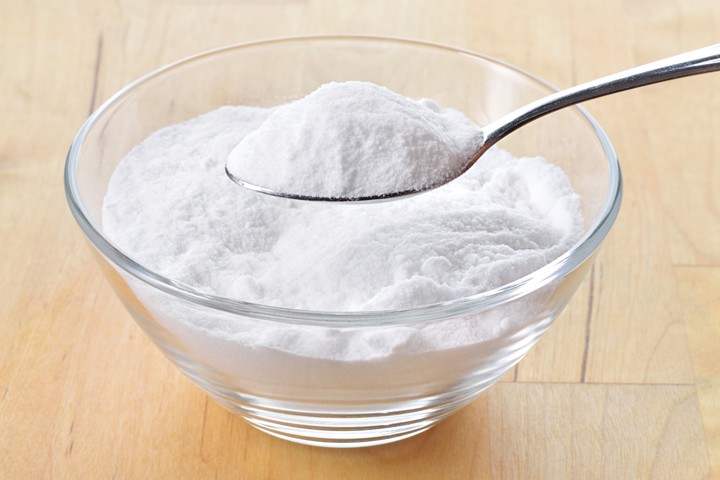In cases when the nasal septum moves from its central position or when the nasal septum becomes crooked, this condition is medically known as a deviated septum. Nose injuries are the most common cause of a deviated septum. Difficulties breathing due to a congestion of the nostrils, headache and even bleeding from the nose are common signs of a deviated septum. Surgical repair of a deviated nasal septum is often recommended in these cases. However, is there any deviated septum treatment without surgery?

Home Remedies for Deviated Septum
Even though surgical treatment is the only way to correct a deviated nasal septum, deviated septum treatment without the surgery is often possible. Unless you have severe signs and symptoms due to a deviated septum, you can try some home remedies for your problem.
- Certain foods, rich in vitamin C such as broccoli, cabbage, strawberries, lemon, grapefruit, or lemons should be part of your diet. These types of food rich in vitamin C help reduce the secretion of mucus.
- Magnesium and calcium supplements will help induce a regular sleep pattern if you have sleeping disorders due to a deviated septum and breathing problems.
- In cases of severe nasal congestion, you can use a home-made nasal spray of warm water and salt, which will help you get rid of the excessive mucus and nasal congestion when sprayed into the nostrils.
- Hot peppers are also a great natural remedy for nasal decongestion.
- If you are allergic to certain things or if you know that some substances irritate your nose, you should keep a considerable distance. Dust, mites, pollen, feathers, etc., are common irritants and allergens. Smoking is also not recommended as it will make the signs and symptoms of a deviated septum get worse. For this reason, you should avoid smoking. Remember that passive smoking will also cause you problems as well.
- Keep your house clean all the time. Change your bed sheets frequently and remove any unnecessary carpets if your house is carpeted in order to avoid any allergic reaction to various allergens.
Is there a deviated septum treatment without surgery? Here are more natural remedies for deviated septum. Learn how to use it.
1. Salt

- If you want to get rid of your nasal congestion problem, boil one cup of water with 2 teaspoons of salt.
- Stir it constantly so the salt gets completely dissolved.
- Heat it for another 25 minutes and once this home-made remedy is ready, use a dropper to apply it directly to your nostrils.
- Make sure to keep one nostril closed while you apply this natural remedy into the other one. Through the water through the mouth, and repeat the same process with the other nostril.
- Repeat this process a couple of times a day and you will notice a relief of the signs and symptoms of a deviated septum soon after.
2. Baking Soda

Baking soda when mixed and heated with a cup of water is a great deviated septum treatment without surgery.
- Breathe the mixed solution once prepared with one nostril, breathing it out through the other nostril.
- Repeat this process a couple of times a day and you will notice a relief of the signs and symptoms of a deviated septum soon after.
3. Lavender Oil

Lavender oil is a great natural remedy which when used for a massage of your nose, can help you get rid of a deviated septum signs and symptoms.
- With the help of a dropper, you can put some drops of lavender oil directly into the nostrils if you prefer.
- You can also inhale the steam from water boiled with a few drops of lavender oil.
- Repeat this process a couple of times a day.
4. Peppermint Oil

- You can inhale the steam of water boiled with a few drops of peppermint oil.
- With the help of a dropper, you can put some drops of peppermint oil directly into the nostrils if you prefer.
- Repeat this process 3 times a day.
5. Ginger

- Boil some ginger roots with a cup of water for about 15 minutes.
- Strain and drink this juice 2 to 3 times a day for a relief of your deviated septum signs and symptoms naturally.
Medications for Deviated Septum
1. Nose Cones
Nose cones are internal nasal dilators which help relieve the signs associated with a deviated nasal septum, mostly during sleep, such as snoring, difficulties breathing, nasal congestion, etc.
2. Decongestants
Are you wondering about deviated septum treatment without surgery? Nasal decongestants as nasal sprays or pills can help you relieve a deviated septum. The sooner you start using these medications, the longer you will postpone the necessity for a surgical treatment. As nasal sprays, decongestants should be used twice a day, while as pills these decongestants should be used once a day or as your healthcare provider prescribes them to you.
3. Steroid Nasal Spray
Steroid nasal sprays are often prescribed for the treatment of deviated septum signs and symptoms. As a deviated nasal septum often leads to an inflammation of the nasal passage, steroid nasal sprays help reduce this inflammation. They are usually used once a day or as your healthcare provider prescribe them to you.
4. Saline Sprays
Saline sprays for nasal congestion are widely available in drug stores and you can buy them without a prescription. They work by loosening the mucus which blocks the airways, reducing this way the signs and symptoms caused by a deviated septum and nasal congestion.
5. Antihistamines
Antihistamines are a type of medication commonly prescribed for an allergy, including the symptoms of a runny nose. Antihistamines are sometimes beneficial in cases of a non-allergic condition such as a deviated septum. Remember that some antihistamines can affect the ability to perform various tasks such as driving, due to the fact that they cause drowsiness.
When Is Surgery Necessary?
Septoplasty
If regardless of all the above mentioned deviated septum treatment, you still have problems with a deviated septum, septoplasty is the only solution. This surgical procedure consists in repositioning and straightening of the nasal septum in the center of the nose. The severity of your septum deviation plays an important role in the final results of this surgery.
Reshaping Your Nose
Reshaping the nose, a surgical procedure commonly known as rhinoplasty is necessary, usually performed at the same time as septoplasty. This surgical procedure consists in the remodeling of the nasal bone and cartilages of the nose, changing the size and the shape of the nose.
